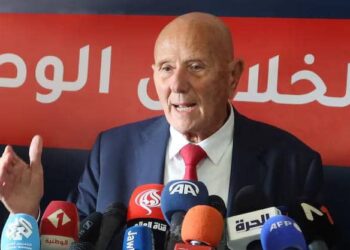By John Ikani
The National Assembly, on Tuesday, amended the Electoral Act (Amendment) Bill for the second time by concurring on consensus candidacy and setting fresh conditions for political parties in the nomination of candidates for elections.
The re-amendment was sequel to a motion on “rescission on clause 84 of the Electoral Act No. 26 2010 (Amendment) Bill, 2022 and Committal to the Committee of the Whole,” sponsored by Senate Leader, Yahaya Abdullahi (Kebbi North).
President Muhammadu Buhari had vetoed the electoral bill and sent it back to the National Assembly over the restriction of political parties to direct primary, insisting that indirect primary and consensus arrangement should be included.
The House of Assembly had amended Clause Section 87 of the Electoral Act 2010, which is Clause 84 of the Electoral Act (Amendment) Bill, by inserting the indirect primary option.
The Senate, however, not only added indirect primary, but also consensus adoption of candidates by a political party.
Senate President Ahmad Lawan, after the amendment to the electoral bill by the committee of the whole, said the re-amendment was done to harmonise the Red Chamber’s position with that of the House of Representatives.
He added that the amendment accommodates clearly defined provisions for the mode of primaries.
Lawan expressed optimism that the bill would be signed into law when transmitted by the National Assembly to the president for his assent.
He warned that any political party that fails or refuses to abide by the provisions on the mode of primaries would miss out on the opportunity to participate during elections.
Key provisions of the amended Bill
The amended bill provides in clause 84 (2): “The procedure for the nomination of candidates by political parties for the various elective positions shall be by direct, indirect primaries or Consensus.”
It added in 84(3): “A political party shall not impose nomination qualification or disqualification criteria, measures, or conditions on any aspirant or candidate for any election in its constitution, guidelines, or rules for nomination of candidates for elections, except as prescribed under sections 65, 66, 106, 107, 131, 137, 177 and 187 of the Constitution of the Federal Republic of Nigeria, 1999 (as amended).”
On direct primaries in 84 (4), the amended version provides: “A political party that adopts the direct primaries procedure shall ensure that all aspirants are given equal opportunity of being voted for by members of the party and shall adopt the procedure outlined below:
“(a) In the case of Presidential Primaries, all registered members of the party shall vote for aspirants of their choice at a designated centre at each ward of the Federation.
“(b) The procedure in paragraph (a) above of this subsection shall be adopted for direct primaries in respect of Gubernatorial, Senatorial, Federal and State Constituencies.
“(c) Special Conventions or Congresses shall be held to ratify the candidate with the highest number of votes at designated centres at the National, State, Senatorial, Federal and State Constituencies, as the case may be.”
On indirect primaries, the bill provides under 84(5): “A political party that adopts the system of indirect primaries for the choice of its candidate shall adopt the procedure outlined below:
“(a) In the case of nominations to the position of Presidential candidate, the political party shall – (i) hold a Special Presidential Convention at a designated centre in the Federal Capital Territory or any other place within the Federation that is agreed to by the National Executive Committee of the party where delegates shall vote for aspirants of their choice.
“(ii) The aspirant with the highest number of votes cast at the end of voting shall be declared the winner of the Presidential primaries of the political party and that aspirant’s name shall be forwarded to the Commission as the candidate of the party.”
It further provides under 84(7): “Where there is only one aspirant or a consensus candidate in a political party for any of the elective positions mentioned in subsection (5)(a), (b), (c) and (d), the party shall convene a special convention or congress at a designated Centre on a specified date for the confirmation of such aspirant and the name of the aspirant shall be forwarded to the Independent National Electoral Commission as the candidate of the party.”
The electoral bill provides in 84 (8): “A political party that adopts the system of indirect primaries for the choice of its candidate shall clearly outline in its constitution and rule the procedure for the democratic election of delegates to vote at the convention, congress meeting.”
On consensus candidate the bill in 84(9) (a) provides: “A political party that adopts a consensus candidate shall secure the written consent of all cleared aspirants for the position, indicating their voluntary withdrawal from the race and their endorsement of the consensus candidate.”
It goes further in paragraph (b): “Where a political party is unable to secure the written consent of all cleared aspirants for the purpose of a consensus candidate, it shall revert to the choice of direct or indirect primaries for the nomination of candidates for the aforesaid elective positions.”
The bill states in paragraph (c):“A Special Convention or nomination Congress shall be held to ratify the choice of consensus candidates at designated centres at the National, State, Senatorial, Federal and State Constituencies, as the case may be.”

































